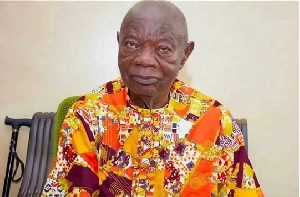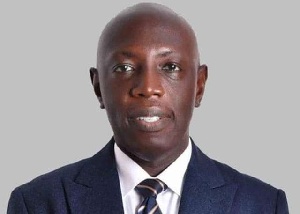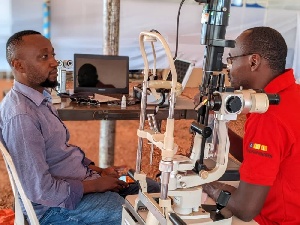- Home - News
- Elections 2024
- News Archive
- Crime & Punishment
- Politics
- Regional
- Editorial
- Health
- Ghanaians Abroad
- Tabloid
- Africa
- Religion
- Photo Archives
- Press Release
General News of Thursday, 29 May 2025
Source: www.ghanawebbers.com
Ibrahim Mahama sues Bright Simons for GH10m; Bright Simons responds with 'no case'
A major legal battle is unfolding in Ghana. Businessman Ibrahim Mahama has sued Bright Simons, Vice President of IMANI Africa.
The lawsuit was filed on May 28 at an Accra High Court. It claims that Simons ran a "false and malicious" campaign against Mahama and his company, Engineers and Planners (E&P).
The dispute centers on an article by Simons titled "Ghana Provides a Lesson in How Not to Nationalise a Gold Mine." This article was published on April 19, 2025, on his website and shared widely on social media.
Mahama and E&P argue that this article damaged their reputation. They claim it falsely portrayed E&P as financially distressed due to halted operations at the Damang gold mine.
The lawsuit also suggests that Mahama improperly used political connections for personal gain. It alleges that E&P received unfair advantages in government mining policies.
In response, Mahama denies all claims made in the article. He calls them "entirely false" and damaging to E&P's credibility with partners.
Mahama seeks several remedies from the court:
1. A declaration that Simons' statements are defamatory.
2. A public retraction and apology published online and in the Daily Graphic for six months.
3. An injunction preventing further defamatory remarks.
4. General damages of GHS10 million.
5. Legal costs and any other relief deemed appropriate by the court.
Bright Simons responded via social media about the lawsuit against him for GHS10 million (about $1 million). He criticized Mahama's objections to his essay analyzing the government's nationalization plan for a gold mine run by Gold Fields.
Simons plans to defend himself vigorously against the lawsuit. He argues there is nothing defamatory in his comments about Mahama or E&P.
He describes the lawsuit as a SLAPP—“strategic lawsuit against public participation.” Such lawsuits aim to intimidate analysts from scrutinizing powerful individuals like Ibrahim Mahama.
Simons asserts that he will present clear arguments during the trial without ambushing Mahama’s lawyers. He highlights two main points regarding defamation claims related to E&P's business relationship with Gold Fields.
First, he notes that E&P has faced challenges since Gold Fields reduced production at Damang mine starting in 2023. This situation logically leads to conclusions about financial difficulties for E&P.
Second, he acknowledges some creditors are unhappy but argues this is common in capital-intensive industries like mining. Many large companies face similar issues globally due to market pressures.
Simons believes his essay did not harm E&P’s reputation among informed analysts who already knew about its financial situation. Public information shows that E&P borrowed $68 million for fleet improvements but struggled with payments leading to debt issues.
He emphasizes the importance of public scrutiny when wealthy individuals like Ibrahim Mahama are involved with nationalized resources. Fear of lawsuits should not stifle accountability or analysis of powerful companies’ actions.
Simons intends to continue covering business affairs related to Mahama and Engineers & Planners openly, regardless of potential legal threats.
Entertainment










